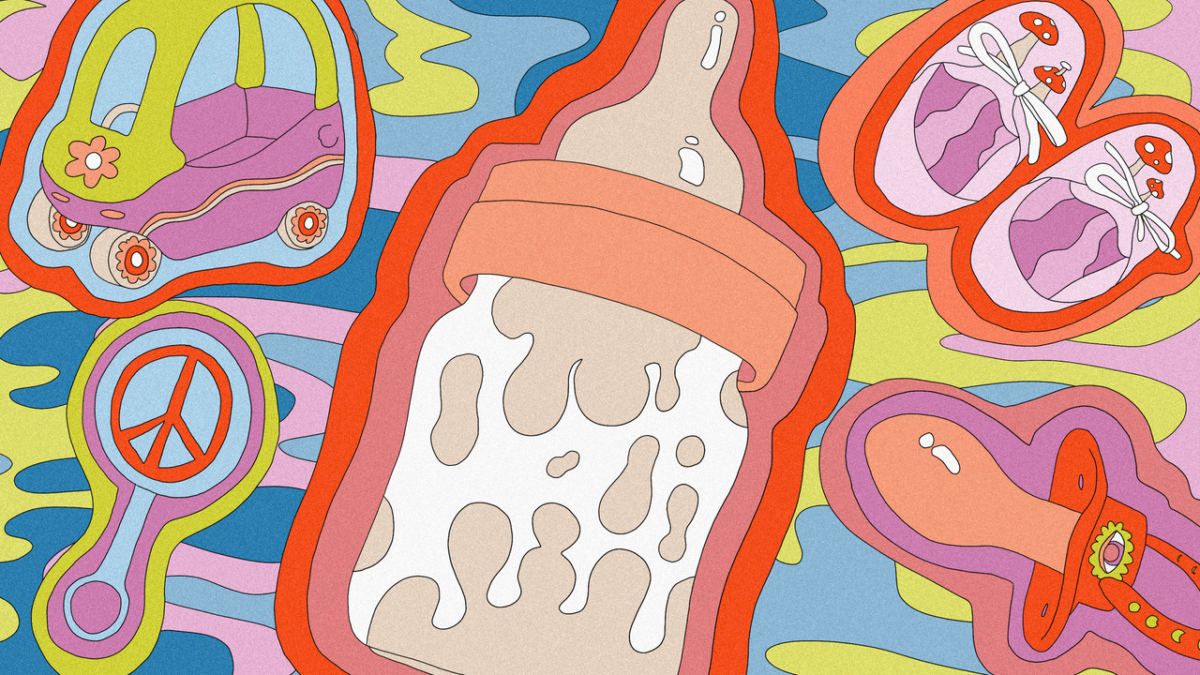
For Sam’s first journey, she took a ketamine lozenge, placed an eye mask over her eyes, and was instructed to relax and open herself to whatever came up—images, memories, feelings. Unlike a traditional therapy session, she did not talk about her struggles. Instead she was invited to observe whatever emerged during her trip.
“My therapist said I would depart from my conscious mind and enter a transformational space of…‘non-ordinary consciousness,’” Sam explains. “I was a little nervous, but I trusted her.”
As the ketamine started working, Sam says her body felt heavy and she slipped into what she describes as a “dreamy state.” She felt a little disoriented at first, until she remembered the words offered by her therapist and was able to settle deeper into the experience. She then recalls being greeted by a feeling she had never experienced: self-compassion. During her journey, she also saw herself as a baby and connected with her own sense of innocence. “I remember saying that I am lucky because I can mother myself.”
Similar insights may emerge in talk therapy, but this can take a long while because the human mind is trained to avoid thoughts and feelings that elicit discomfort. With ketamine therapy, however, there can be an “ego dissolution” that allows these repressed feelings and memories to rise to the surface without the mind becoming stuck in reactivity, rumination, or judgment.
Sam’s self-critical thoughts went on hiatus during her journey, allowing her to create a fresh narrative about her maternal experience. “It showed me a new way to think about myself,” she says. “Instead of spinning [in worry], I could listen to my gut feeling. I can’t even explain the freedom this shift has given me.”
Some experts call this fresh perspective “new mind,” and it can be one of the immediate upsides of KAP. The idea is that when mothers take a break from their worries, obsessions, and shame spirals, they can see that it’s possible to think and feel differently.
How can I tell if KAP is right for me?
When treating PPD, talk therapy, medication, and group support are still frontline treatments because numerous studies show they’re successful. However, for women with severe or recurrent PPD, ketamine is another medicinal tool, Dr. Schultz says.
And while plenty of research suggests that antidepressants can alleviate maternal depression, Dr. Schultz says they are not for everyone. Unwanted side effects like drowsiness and weight gain can be challenging to tolerate. “Ketamine’s side effect burden is minimal, and when it works, it tends to work rapidly,” the psychiatrist adds. For this reason, it may be helpful for depressed mothers who haven’t found relief with therapy or medication alone.
Birth trauma or childhood trauma often underpins maternal suffering. In these cases, KAP can help a new mother process her trauma by providing the space and distance necessary to cease reexperiencing the frightening triggers.
Because ketamine is a schedule III substance, mothers may understandably worry about becoming dependent on the medicine. However, all psychotherapy work with ketamine is closely monitored by a prescribing physician or nurse practitioners. That said, KAP’s ability to treat PPD remains very new, so all mothers should consult with their obstetrician or a mental health provider before making a decision.
How can I find a provider?
If you’re considering KAP, it’s important to know that it requires specialized training and is legally offered only by mental health professionals who work alongside a physician.













